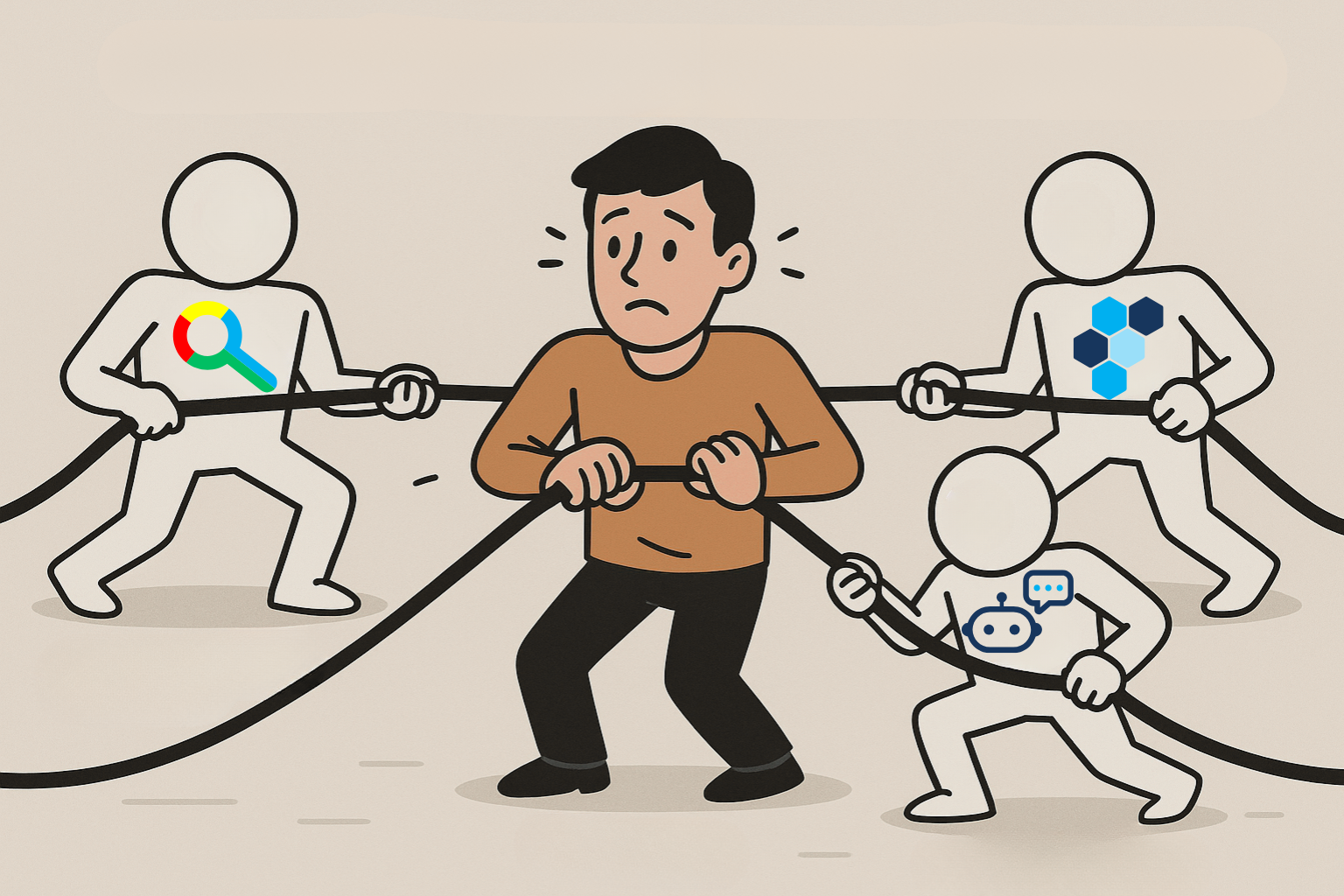The Secret Behind AI User Engagement

Recently, during a panel discussion, an interesting point was made: “…when it comes to AI, we talk a lot about technology. But in the AI race, it won’t be the best technology that wins, but the best UX…” This sounds plausible (in the consumer space, it was the same with computers, smartphones, etc.), but what does it mean for digital publishing?
The fact is that the major AI providers are trying to secure users more firmly. Currently, they are focusing heavily on two levers: omnipresence and user-friendliness (UX). A clear trend, which started with ChatGPT, is visible: users visit the OpenAI website, get answers to their questions with the help of prompts, ask follow-up questions if needed, and refine the responses.
According to OpenAI, ChatGPT is now predominantly used in private contexts (for a detailed breakdown of user query types, hier unser Blogpost mit der Zusammenfassung).
Google has made an extremely aggressive move with the “AI Overviews” feature. In Germany, the feature was rolled out nationwide in June 2025. Today, it is estimated that nearly 20% of Google search results in Germany include AI Overviews. The integration of Gemini into Google Search is another step, allowing users to refine their queries in a dialogue with the search engine and use it as a starting point for “conversations” – similar to ChatGPT. In “Agentic Mode,” Google can also perform tasks, such as placing online orders.
For the individual Google user, this is naturally very convenient – you simply search as you’ve been doing for years and get condensed results without having to click through to a content provider, which saves loading time and navigation.
Google has therefore created a good UX, but it risks part of its search monetization (fewer clicks on sponsored links). A step like this is only taken when competitive pressure demands it.
However, I believe Google is securing a crucial share of user traffic against competitors. Did Google consider what this means for publishers? Maybe, but the impact seems minimal.
What about the others? Perplexity, for example, made its AI browser “Comet” generally available for desktop last Tuesday. Perplexity.ai is set as the default search engine. Once configured, “Comet” can also access Google and Outlook emails and calendars, as well as Google Drive, Notion, GitHub, Slack, WhatsApp, etc. Using this information, “Comet” can organize meetings, book trips, shop, write emails, or list tasks.
OpenAI has launched a similar concept with “Pulse.” Here, too, personal information such as email, calendar, etc., can be accessed. The result is more of a “daily digest” – recommendations, to-do lists, and suggestions for background research. Currently, this is limited to ChatGPT Pro users, but this is likely temporary.
Will “Comet” and “Pulse” gain traction in the non-professional space? Hard to say – it will likely take time and require features that provide consumers with information and news. And that content has to come from somewhere.
From a business perspective, one almost has to shout: this is “hell for trade secrets, confidentiality, and security.” For journalists, this concern is doubled.
Conclusion for publishers: There really is no alternative to building and maintaining direct relationships with readers/users – through subscriptions, registrations, newsletters, events, or a presence in urban or regional spaces. But also: “keep your eyes open” when using AI internally.
Andreas Demuth is Managing Partner at Upscore.

